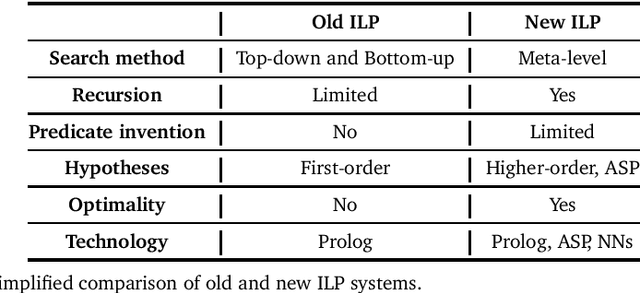Inductive logic programming at 30
Paper and Code
Feb 21, 2021
Inductive logic programming (ILP) is a form of logic-based machine learning. The goal of ILP is to induce a hypothesis (a logic program) that generalises given training examples and background knowledge. As ILP turns 30, we survey recent work in the field. In this survey, we focus on (i) new meta-level search methods, (ii) techniques for learning recursive programs that generalise from few examples, (iii) new approaches for predicate invention, and (iv) the use of different technologies, notably answer set programming and neural networks. We conclude by discussing some of the current limitations of ILP and discuss directions for future research.
* Extension of IJCAI20 survey paper. arXiv admin note: substantial text
overlap with arXiv:2002.11002, arXiv:2008.07912
 Add to Chrome
Add to Chrome Add to Firefox
Add to Firefox Add to Edge
Add to Edge